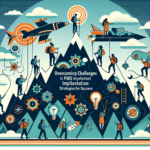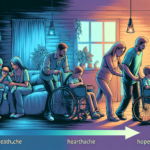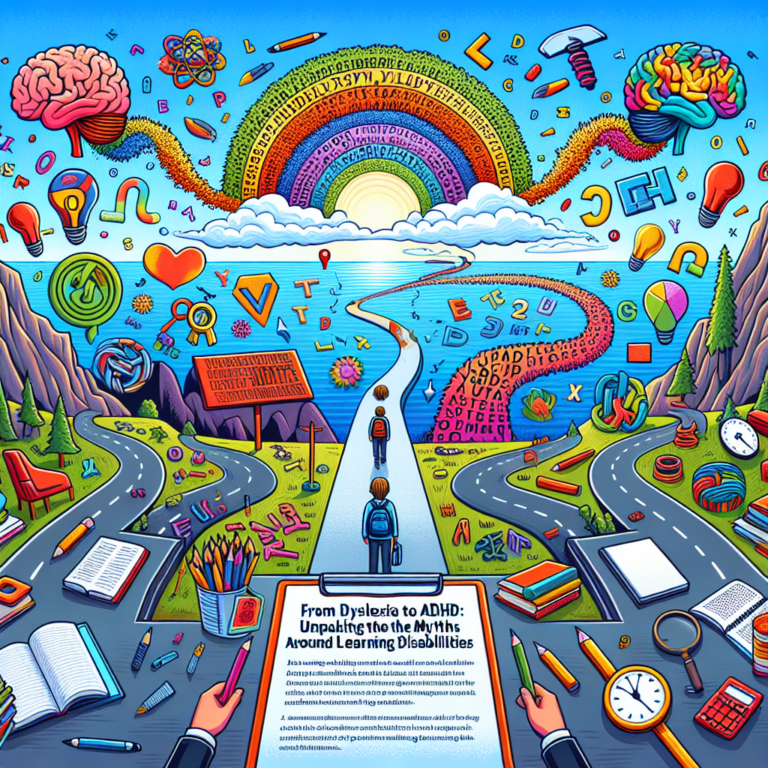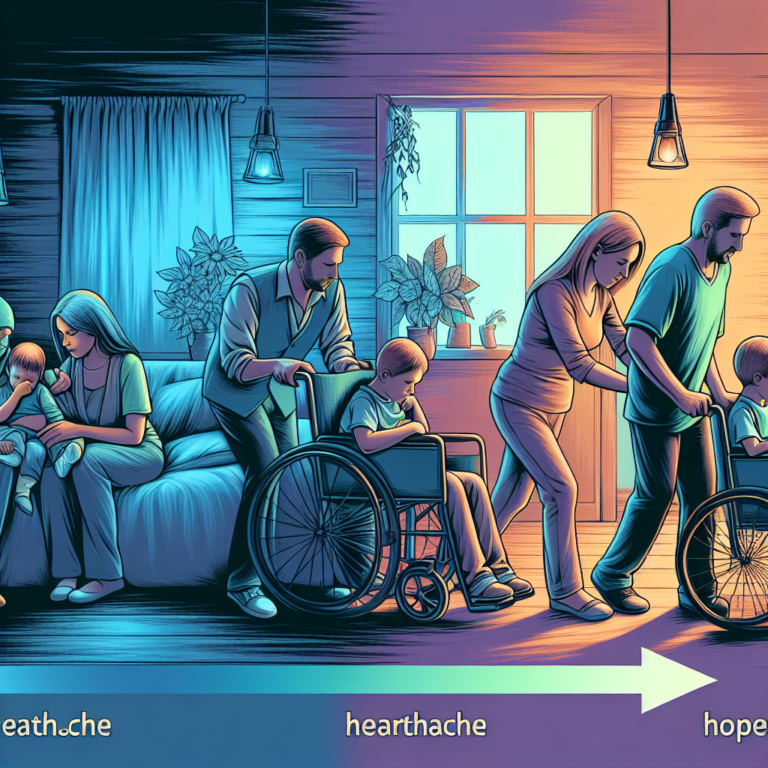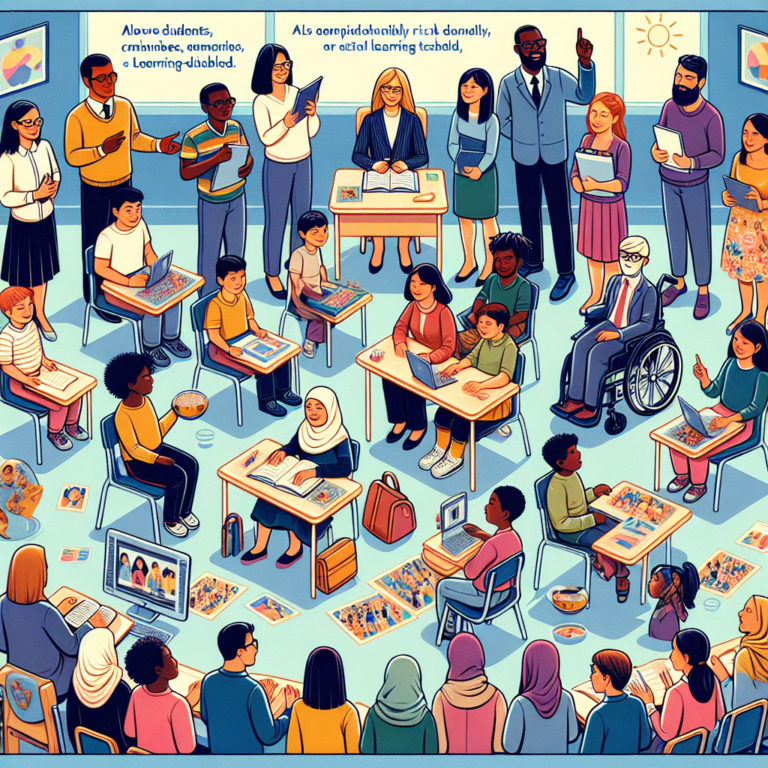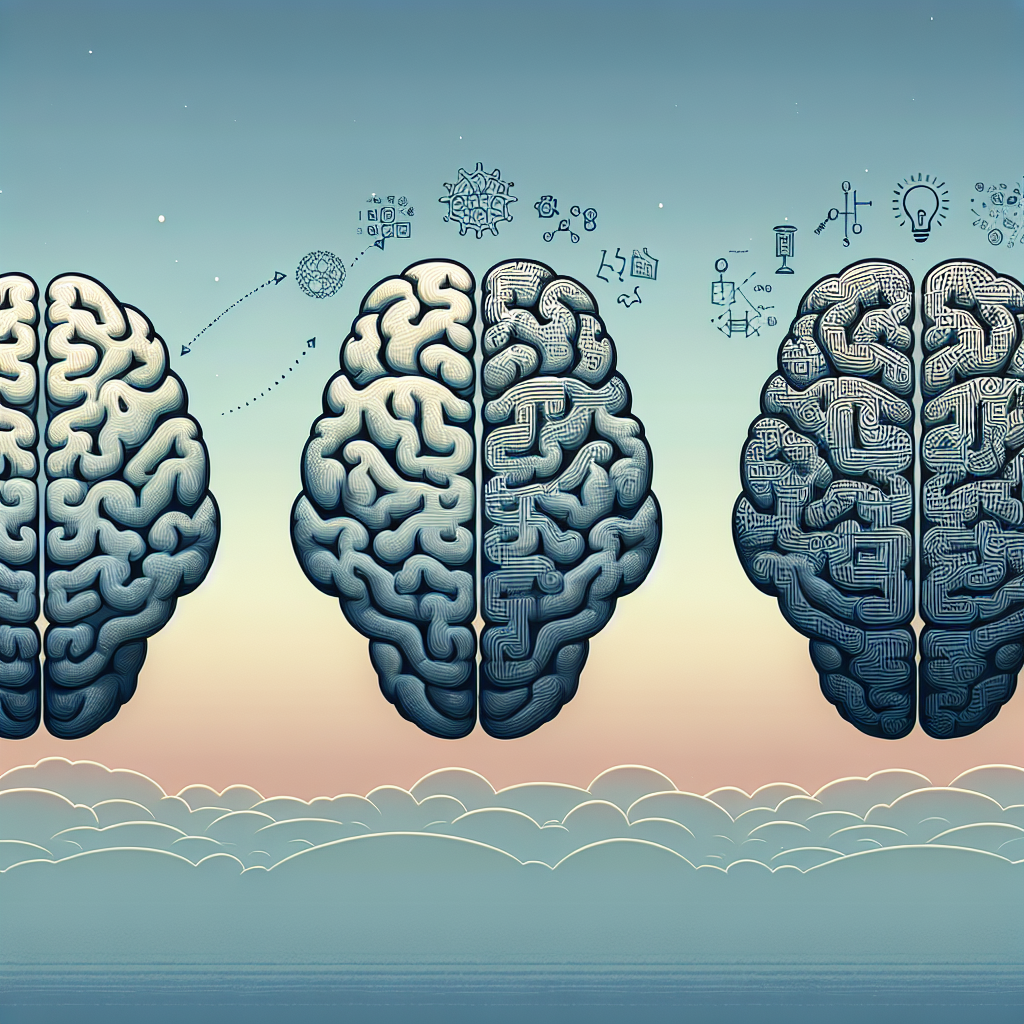
The Science of Thinking: Exploring Key Stages of Cognitive Development
Introduction
Have you ever watched a child interact with the world around them and wondered about the processes happening in their minds? The journey of cognitive development is not merely about acquiring knowledge; it spans the profound transformation of thoughts, perceptions, and reasoning abilities. In this ultimate exploration of The Science of Thinking: Exploring Key Stages of Cognitive Development, we will delve into the intricate stages that characterize human cognition, shedding light on how our mental faculties evolve from infancy to adulthood. Understanding these stages is essential not only for educators and parents but for anyone keen on enhancing their cognitive skills and fostering critical thinking in themselves and others.
The Foundations of Cognitive Development
Cognitive development encompasses the changes in how we think, learn, and understand throughout our lives. From Jean Piaget’s seminal theories to modern neuroscience, our understanding of cognitive processes has evolved dramatically. Piaget identified four key stages that children pass through: Sensorimotor, Preoperational, Concrete Operational, and Formal Operational. Each stage presents unique challenges and opportunities for cognitive growth.
Table 1: Piaget’s Stages of Cognitive Development
| Stage | Age Range | Key Characteristics |
|---|---|---|
| Sensorimotor | 0-2 years | Experiencing the world through senses and actions. |
| Preoperational | 2-7 years | Developing language and symbolic thinking but lacking logic. |
| Concrete Operational | 7-11 years | Mastering logical operations and understanding conservation. |
| Formal Operational | 12 years and up | Abstract reasoning and problem-solving skills. |
The Sensorimotor Stage (0-2 years)
In this initial stage, infants learn through their senses and motor actions. They explore their environment by touching, seeing, and manipulating objects. A classic example illustrating this stage is the “A-not-B” task where infants search for an object where they last found it, demonstrating their developing understanding of object permanence.
Case Study: The A-not-B Task
A study in 1993 by Baillargeon et al. demonstrated infants as young as 3.5 months understand object permanence better than previously thought. This insight challenges prior beliefs and highlights the intellectual capabilities infants possess earlier in their development.
The Preoperational Stage (2-7 years)
During the preoperational stage, children begin to think symbolically and develop language skills. However, their reasoning remains intuitive, not logical. They struggle with understanding others’ perspectives, which can lead to egocentrism—viewing the world entirely from their vantage point. This is evidenced by the famous "Three Mountains" task, which assesses a child’s ability to see a situation from another’s perspective.
Case Study: The Three Mountains Task
In a 1973 study, children were shown a model of three mountains and asked to explain what a doll placed at a different viewpoint would see. Many children under 7 failed these tests, demonstrating their egocentric worldview. This informs educators that when presenting new ideas, it’s crucial to consider a child’s perspective.
The Concrete Operational Stage (7-11 years)
At this stage, children start to think logically about concrete events. They understand concepts like conservation (the idea that quantity doesn’t change even when its shape does) and can classify objects into different sets. Their thinking becomes more organized and systematic, making this an essential phase for educators to introduce basic mathematics and scientific concepts.
Case Study: Conservation Tasks
In 1983, a study on conservation involving volume and liquid depicted that children could understand conservation by the age of 7. This realization empowers educators to promote critical thinking through the introduction of practical, hands-on learning activities at this age.
The Formal Operational Stage (12 years and up)
The transition into the formal operational stage allows individuals to think abstractly and critically. They can conceptualize hypothetical situations, deduce consequences, and engage in systematic planning. This stage emphasizes the importance of logic and scientific reasoning, crucial for higher education.
Case Study: Abstract Learning in Adolescents
A 2009 study highlighted that adolescents who participate in advanced placement courses show a marked improvement in abstract reasoning abilities. Facilitating such learning environments enhances cognitive development for teens, preparing them for the complexities of adult reasoning.
The Role of Environment in Cognitive Development
Cognitive development is not solely a biological process; it is significantly influenced by environment, culture, and educational practices. Vygotsky’s sociocultural theory emphasizes the importance of social interaction and cultural context in cognitive growth. This perspective reveals how collaborative learning and guided interaction enhance cognitive skills across all developmental stages.
Chart 1: Factors Influencing Cognitive Development
| Level | Factor | Influence |
|---|---|---|
| Individual | Genetics | Innate cognitive potential |
| Family | Parenting Style | Nurturing cognitive growth through engagement |
| Environment | Educational Opportunities | Access to resources and varied experiences |
| Cultural Context | Socioeconomic Status | Influence of community and cultural resources |
Parental Influence
Case studies emphasize that nurturing and responsive parenting practices lead to better cognitive outcomes. Engaging in conversations, reading, and encouraging exploration stimulate cognitive skills in early childhood.
Educational Systems
Innovative educational systems that promote constructivist approaches enable students to learn through experience. Schools adopting project-based learning, where students tackle real-world issues, have seen remarkable improvements in critical thinking and cognitive flexibility.
Bridging Cognitive Development and Critical Thinking
Understanding The Science of Thinking: Exploring Key Stages of Cognitive Development is paramount in cultivating critical thinking skills, which are essential in today’s information-rich society. Educators and parents must foster environments conducive to questioning, reasoning, and analytical thinking.
Strategies for Encouraging Critical Thinking
Question-Based Learning: Encourage students to ask questions about their surroundings and engage in exploratory discussions.
Problem-Solving Activities: Create scenarios where children must apply their knowledge to solve real-world problems, enhancing logical reasoning skills.
- Reflective Exercises: Promote journaling or group discussions that allow children to reflect on their thinking processes and decision-making.
Case Study: A Shift to Inquiry-Based Learning
A longitudinal study conducted in a primary school switching to inquiry-based learning methodologies reported a 30% increase in critical thinking scores over three years. This aligns with findings that highlight the enhanced cognitive abilities in environments prioritizing inquiry and reflection.
Conclusion
The intricate tapestry of cognitive development unfolds in stages, each foundational to the next. By exploring The Science of Thinking: Exploring Key Stages of Cognitive Development, we gain insights vital for nurturing the intellectual growth of individuals across the lifespan. From understanding the basic principles of child development to implementing strategies that empower critical thinking, we can all contribute to creating thinkers who will navigate the complexities of our world effectively.
Key Takeaways
Understanding Stages: Knowledge of cognitive development stages helps tailor educational strategies to foster growth.
Environmental Impact: A supportive environment is crucial for cognitive skills development, affecting individual growth trajectories.
- Promoting Critical Thinking: Adopting evidence-based teaching methods encourages critical thinking abilities essential for future challenges.
FAQs
What is cognitive development?
Cognitive development refers to the progression of thinking, problem-solving, and understanding throughout life, influenced by both biological and environmental factors.Why are Piaget’s stages important?
Piaget’s stages provide a framework for understanding how children’s thinking evolves, helping educators tailor their teaching methods to align with students’ cognitive abilities.How can parents support cognitive development?
Parents can support cognitive development by engaging in interactions that promote exploration, discussion, and critical thinking.Is cognitive development the same for everyone?
No, cognitive development varies due to genetic, environmental, and cultural differences, influencing each individual’s path.- What role does education play in cognitive development?
Education plays a vital role by providing structured opportunities for learning, fostering critical thinking, and enhancing cognitive abilities through diverse experiences.
By understanding and applying the principles of cognitive development and fostering environments that promote thoughtful inquiry, we empower future generations to think critically and tackle the challenges of tomorrow. As you embark on your journey through the complexities of thinking and learning, remember the impact you can make in shaping a brighter, more thoughtful future.


